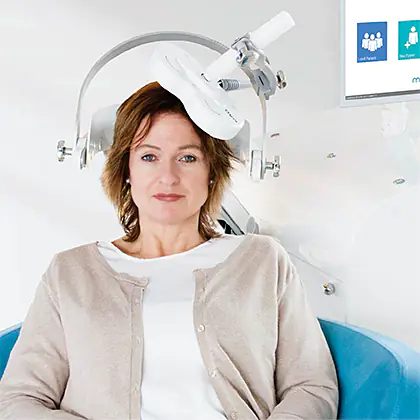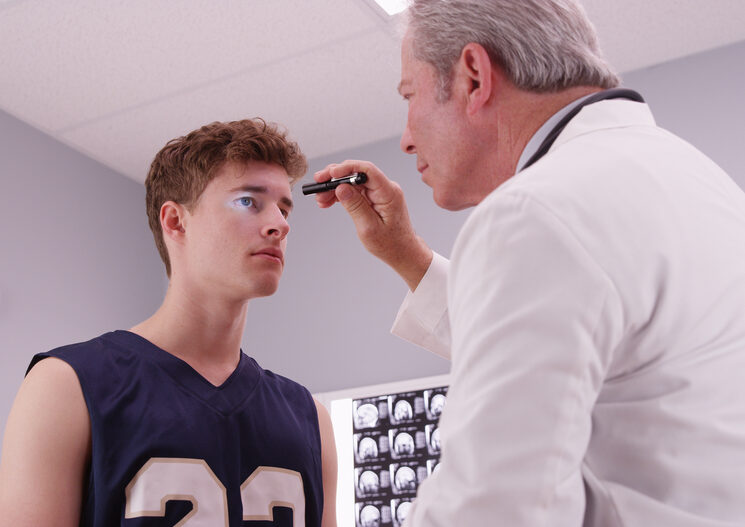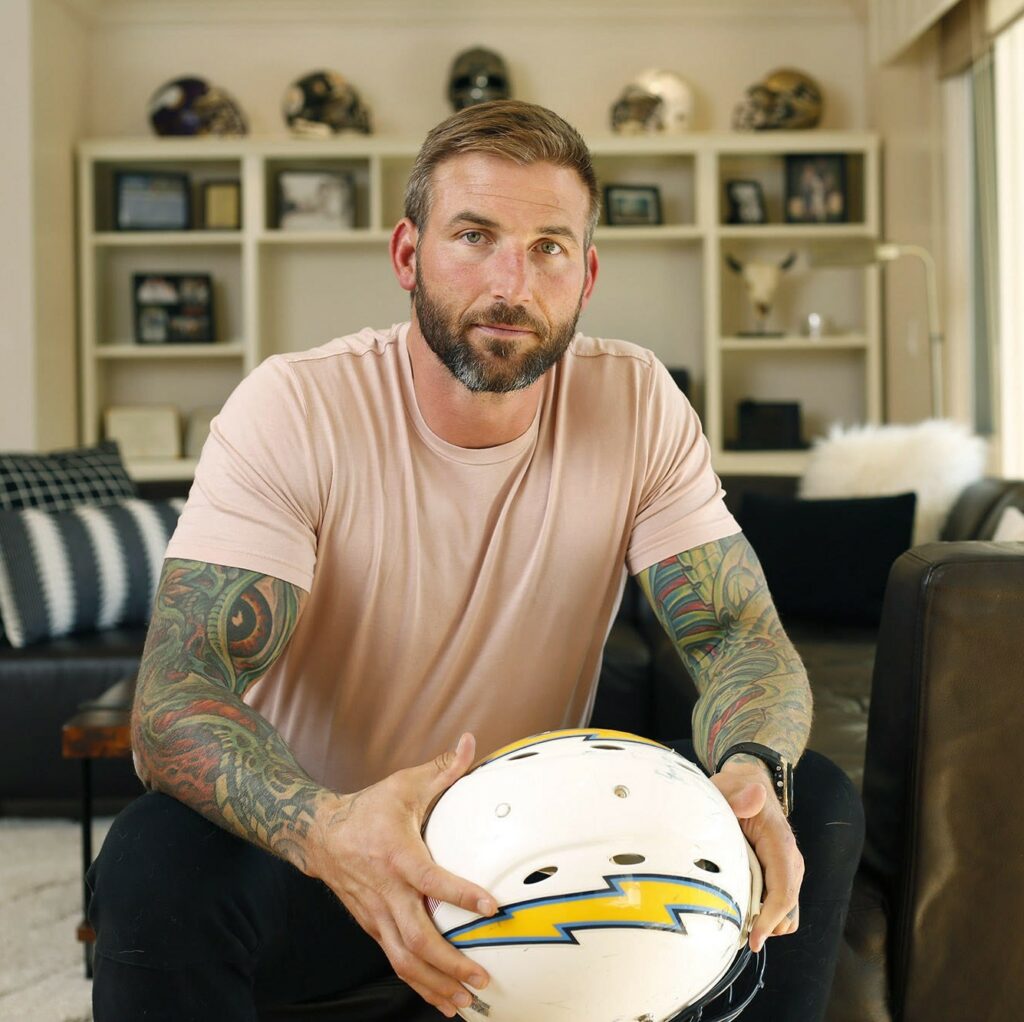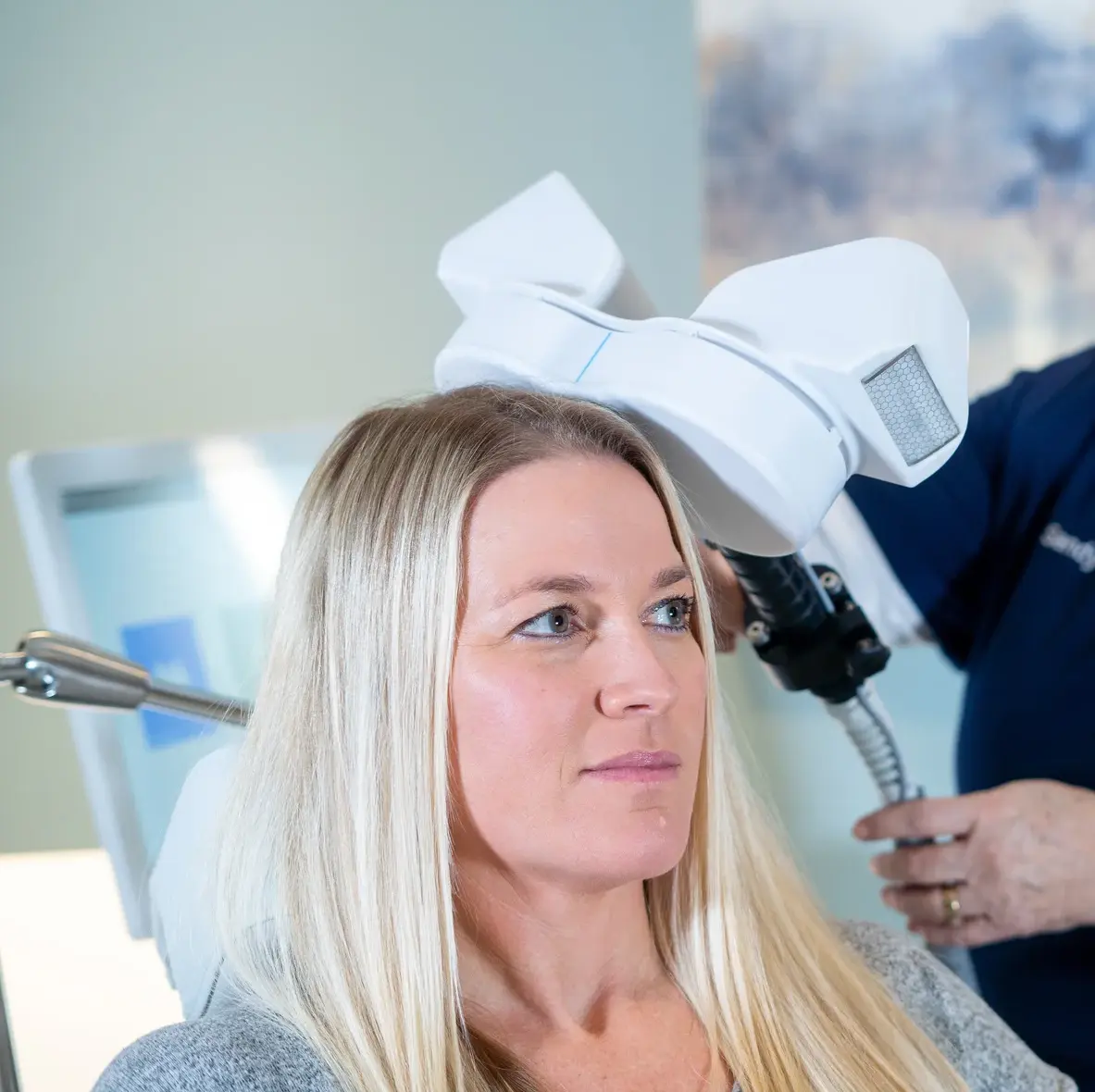
MeRT: A Groundbreaking Approach to Treating Traumatic Brain Injury (TBI)
This drug-free, non-invasive, and lasting treatment can help reduce the after-effects of a head injury.
Strong Scientific Evidence Supports MeRT for Treating Head Injuries
MeRT, a customized approach built on the principles of repetitive Transcranial Magnetic Stimulation (rTMS), is backed by a wide range of independent research conducted over the years. Numerous peer-reviewed studies published in respected scientific journals underscore its effectiveness in addressing the effects of head injuries. Below are several notable examples.
The use of repetitive transcranial magnetic stimulation (rTMS) following traumatic brain injury (TBI): A scoping review:
“Evidence suggests that rTMS has the potential to be an efficacious therapeutic intervention for multiple symptoms after TBI, including depression, dizziness, central pain, and visual neglect. “
Neuromodulatory Interventions for Traumatic Brain Injury:
In this special issue of the Journal of Head Trauma Rehabilitation, we share with readers some of the latest advancements in neuromodulation specific to TBI, while providing the framework to further our understanding of how and why functional skills are likely improved. While neuromodulatory interventions can play a critical role in functional recovery for those with TBI, the heterogenous nature of TBI means that clinical implementation of neuromodulation will require understanding, at the individual and group levels, of how, when, and where to alter brain activity to support sustained recovery of sensory and higher order functions.
The role of transcranial magnetic stimulation in treating depression after traumatic brain injury:
“This study suggests that rTMS is a potential treatment option for depression following TBI. Both 15 to 16 session and 30 to 38 session cohorts showed significant decreases in depression as measured by PHQ-9 following rTMS treatment. These findings support the use of rTMS in post-concussion depression treatment and highlight the need for more research on rTMS therapy following TBI.
Randomized trial of rTMS in traumatic brain injury: improved subjective neurobehavioral symptoms and increases in EEG delta activity:
“Subjective measures of depression, sleep dysfunction, post-concussive symptoms (PCS), and executive function showed significant improvement with stimulation, retaining improved levels at two-week follow-up. EEG delta power exhibited elevation one week after stimulation cessation.”
Neural mechanisms of emotional health in traumatic brain injury patients undergoing rTMS treatment:
“Our findings uncover the neural mechanisms underlying the improvement in emotional well-being in TBI due to application of neuromodulation. The main effect of rTMS is to reduce emotional disorders and hence consequently it may improve cognitive and executive functions.”
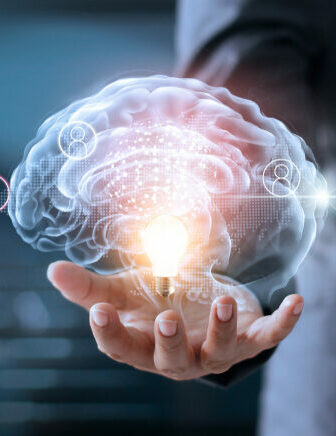
Low frequency transcranial magnetic stimulation for cognitive recovery after traumatic brain injury: A case report:
“Our results are consistent with studies showing improved cognitive functioning in TBI following a unilateral or bilateral rTMS protocol that used low frequency rTMS over the right DLPFC. Therefore, this stimulation site may be promising for improving cognitive recovery in TBI, especially when combined with cognitive rehabilitation.”
Repetitive Transcranial Magnetic Stimulation for Treatment of Depression in a Patient With Severe Traumatic Brain Injury:
“Case Report: A 37-year-old male with history of anxiety and bipolar depression incurred a TBI after a 60-foot fall. After his physical recovery, the patient had refractory depression. Eight months after the TBI event, he underwent a 6-week course of rTMS treatment and had a 70.8% improvement in mood symptoms by the end of the therapy as indicated by the Patient Health Questionnaire-9, transitioning from severe to mild depression according to the scoring system. Clinical correlation during the months following conclusion of rTMS therapy showed no signs of remission or adverse side effects. The patient remains stable and lives independently 1 year after treatment with mood-stabilizing medications.
“Conclusion: This case provides evidence for successful treatment of refractory depressive symptoms after severe TBI with the addition of rTMS to psychotherapy and mood-stabilizing medications, supporting the safety and tolerability of this novel therapeutic approach. Further studies are needed to validate the contribution of rTMS for management of mood symptoms in patients with TBI.”
Hear it from the Patients
Our patients have a lot to say about their experience with MeRT!
“I’m back! My TBI turned me into someone I barely recognized. I was depressed, mean, and short-tempered. I pushed through life filled with frustration and a deep sense of sadness that this was it. And I just had to keep pushing through life with an overwhelming tiredness.
“I’m so glad I was wrong. I think my direct reports and family are even more thankful. This treatment changed everything, and I am forever thankful.”
41-year-old male with TBI
“I’m two or three months past my last treatment, and I can honestly say my brain is in a better place than it was before. The emotional highs and lows I was living with have been stabilized. My cognition took off during that period, and it hasn’t slowed down since.”
Nick Hardwick
Retired NFL Center, Chargers“I was offered the opportunity to attend the BTC to help with the effects of the TBIs I had endured over 21 years of Military Service. And I am absolutely glad I did so — I felt the positive effects of the treatment in the first 3 days.
“I had irritability issues, although traffic can do that to you, and sleeping issues, among other things. On Day 3, I started sleeping through the night. And not just sleeping, but sleeping hard and dreaming. So I know I was in R.E.M. sleep.
“It has helped me focus, feel more energetic, less irritable, more caring to others, and helped with joint pain and tinnitus. The staff is also very amazing and extremely professional. I highly recommend the BTC. Trust the process, and you’ll have the same results as I did.”
=TBI Patient
Patient“I did six weeks of therapy at the Brain Treatment Center. I started therapy with anxiety and depression due to traumatic brain injury. After the third week, it felt like a weight was lifted off my shoulders. I started to have ah-ha moments, but it was about things I already knew.
“The therapy allowed me to clear my brain and concentrate on things. I was no longer spiraling about things that really didn’t matter but seemed real at the time. Thank you for my life back.”
TBI Patient
“Everything changed when I started treatment. Within two weeks, I was sleeping better. I was off all 12 of the meds I was on when I began treatment, and I was starting to enjoy life again. After the first month, I was socializing with people, I was able to work out for the first time in years, and I started to help my wife with the bills and our budget.
“As I write this, I just completed my sixth week of treatment. A conservative estimate is that I have had a 60–70% reduction of the symptoms I listed above, and I have a whole new lease on life. I can focus and I feel good about myself. I feel confident. And I laugh again. Most importantly, I can feel the love for and from my family again.”
TBI Patient
“The team at the Brain Treatment Center are the most genuinely kind people you will ever meet. And the MeRT treatment has made a HUGE quality of life positive change for me.
“I am a vet who got blown up a couple of times and I suffer from TBI and PTSD. These sessions have turned my life around. My wife notices the positive changes in my depression, anxiety, and irritability and says I am fun to be around again.
“I can’t say enough great things about this place. Thank God it exists!”
Cyrus B.
“In the ensuing months after the concussion, I just wasn’t myself. My academics began to suffer as well. I didn’t feel right. My EEG showed me that something had physically changed with how my brain functioned.
“After three days of treatment, I felt substantially better. After two weeks, I felt like I did before my injury. MeRT was life changing.”
21-year-old female with TBI
“I’d just always ‘outworked’ it. After the last concussion, that wasn’t an option, even though I had previously walked off a dozen concussions. It’s vital to know that not all TBIs result in massive concussions, but they all add to the erosion of the mind and self if untreated.
“Through EEG, MeRT, and some subtle sleep and attention shifts, I’ve had a radical, nourishing, strengthening, and dare I say, ‘healing,’ that has brought me to see life through a filter I’ve never known was available.
“Giving life a chance is sometimes just staying in ‘the Try.’ If you are damaged, confused, and at the end, know that you have allies that you’ve never met before.”
Tait Fletcher
Stunt Performer“I’ve made significant progress in cognitive ability, stress tolerance, and mental clarity. I have been able to handle decisions much better and think clearer. And I have been able to significantly decrease conflict with my family and actually lead much better.”

